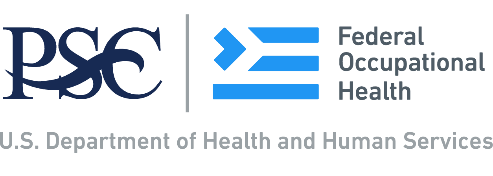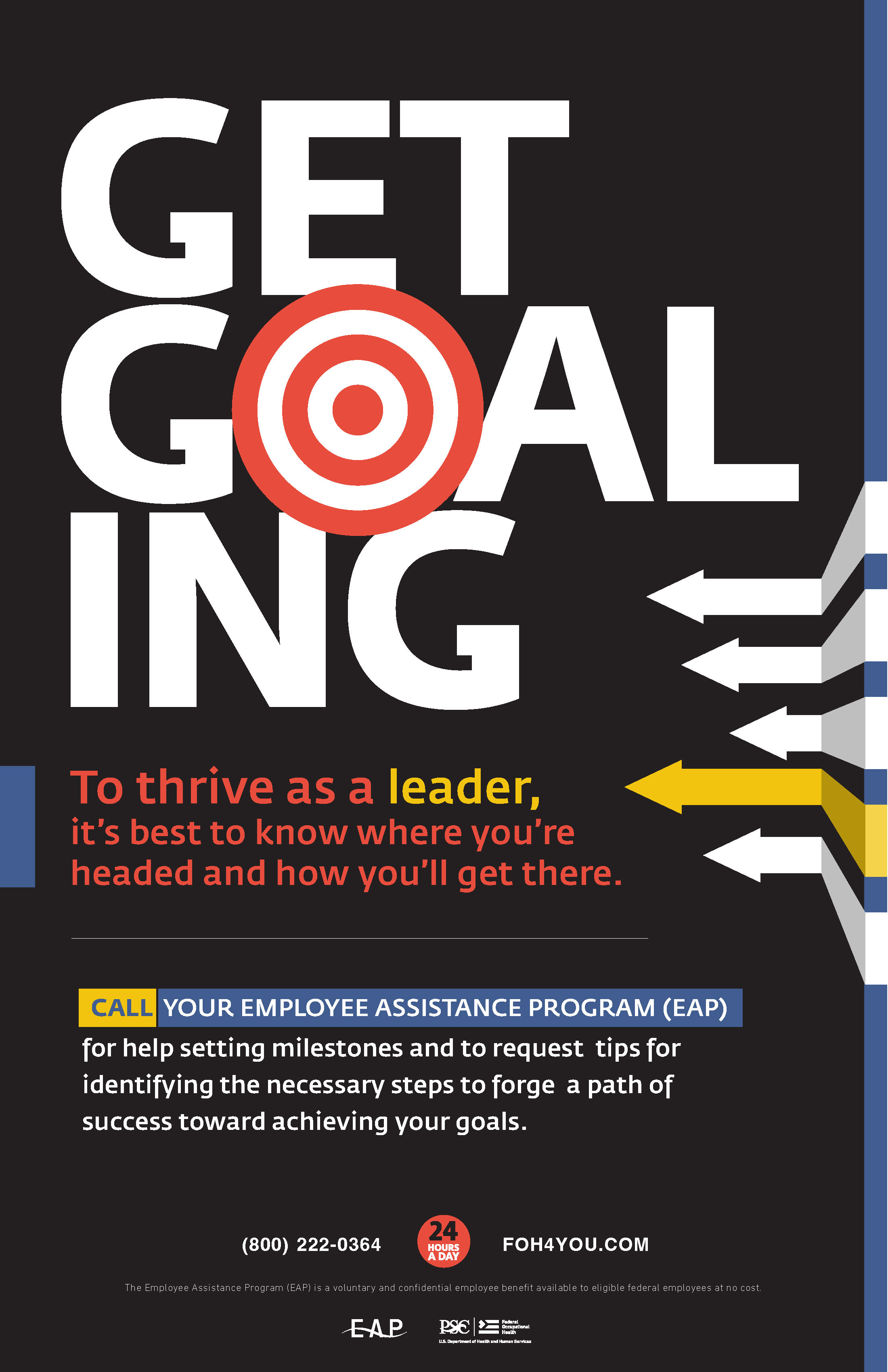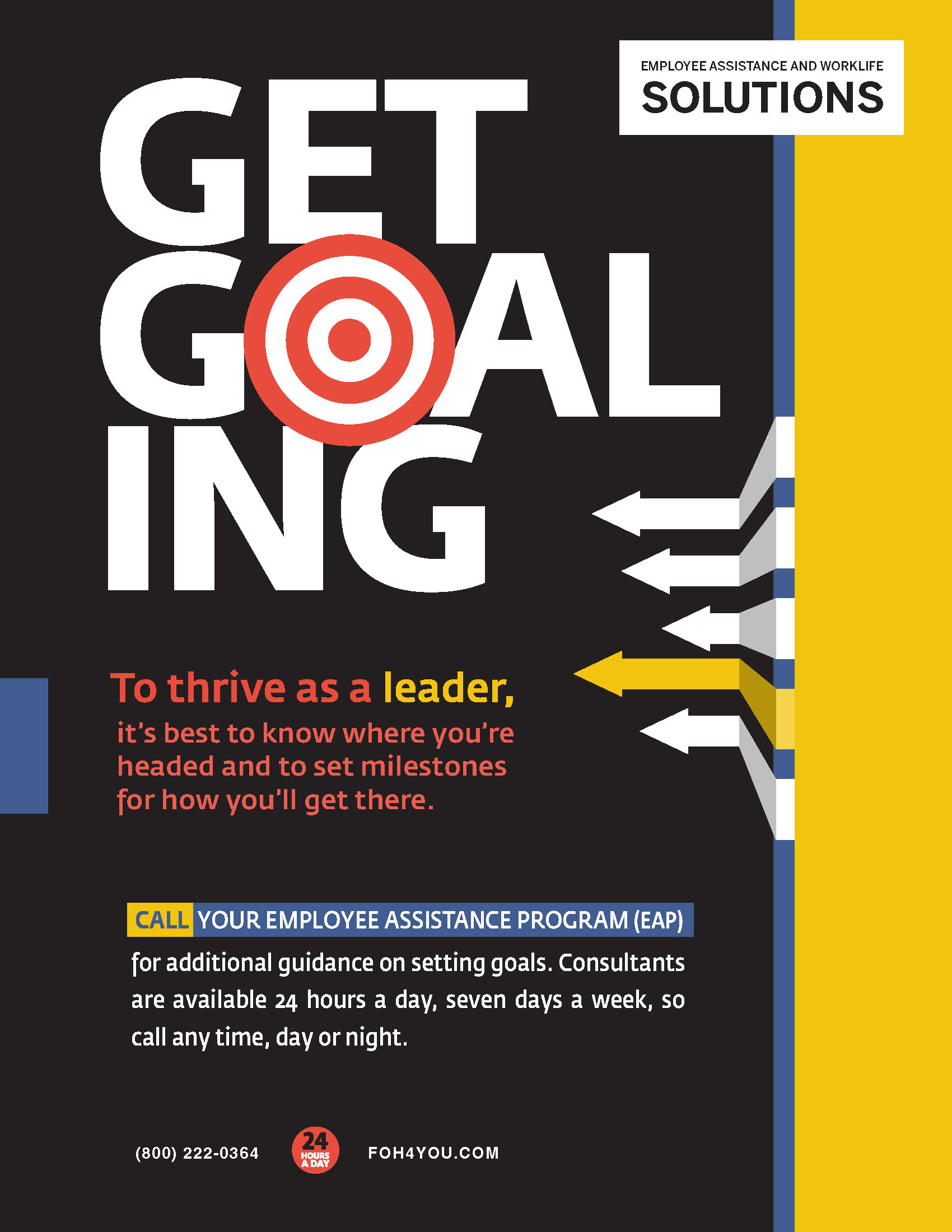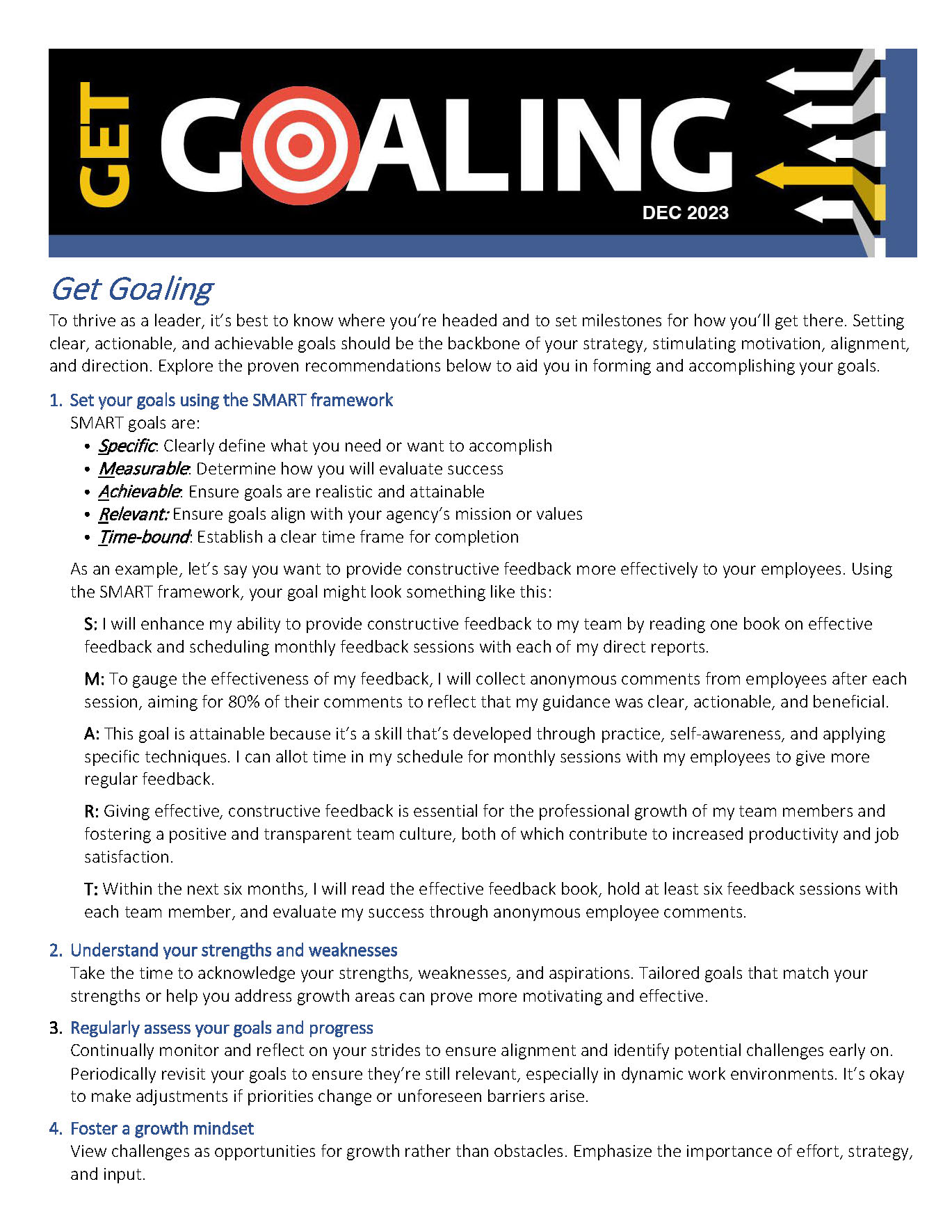Get Goaling

To thrive as a leader, it’s best to know where you’re headed and to set milestones for how you’ll get there. Setting clear, actionable, and achievable goals should be the backbone of your strategy, stimulating motivation, alignment, and direction. Explore the proven recommendations below to aid you in forming and accomplishing your goals.
- Set your goals using the SMART framework
SMART goals are:
• Specific: Clearly define what you need or want to accomplish
• Measurable: Determine how you will evaluate success
• Achievable: Ensure goals are realistic and attainable
• Relevant: Ensure goals align with your agency’s mission or values
• Time-bound: Establish a clear time frame for completion
As an example, let’s say you want to provide constructive feedback more effectively to your employees. Using the SMART framework, your goal might look something like this:
S: I will enhance my ability to provide constructive feedback to my team by reading one book on effective feedback and scheduling monthly feedback sessions with each of my direct reports.
M: To gauge the effectiveness of my feedback, I will collect anonymous comments from employees after each session, aiming for 80% of their comments to reflect that my guidance was clear, actionable, and beneficial.
A: This goal is attainable because it’s a skill that’s developed through practice, self-awareness, and applying specific techniques. I can allot time in my schedule for monthly sessions with my employees to give more regular feedback.
R: Giving effective, constructive feedback is essential for the professional growth of my team members and fostering a positive and transparent team culture, both of which contribute to increased productivity and job satisfaction.
T: Within the next six months, I will read the effective feedback book, hold at least six feedback sessions with each team member, and evaluate my success through anonymous employee comments. - Understand your strengths and weaknesses
Take the time to acknowledge your strengths, weaknesses, and aspirations. Tailored goals that match your strengths or help you address growth areas can prove more motivating and effective. - Regularly assess your goals and progress
Continually monitor and reflect on your strides to ensure alignment and identify potential challenges early on. Periodically revisit your goals to ensure they’re still relevant, especially in dynamic work environments. It’s okay to make adjustments if priorities change or unforeseen barriers arise. - Foster a growth mindset
View challenges as opportunities for growth rather than obstacles. Emphasize the importance of effort, strategy, and input. - Celebrate accomplishments
Recognizing and celebrating your successes, no matter how small, can energize and encourage you to keep at it. - Use the right tools
Consider leveraging tools, such as apps or a spreadsheet, that facilitate goal tracking to streamline the process and make monitoring easier. - Set yourself up for success, one goal at a time
Keep in mind that goal setting is more than just ticking off boxes; it's about nurturing growth, achievement, and intent.
Download the Campaign
|
PDF Newsletter |
PT Newsletter |
|
Contact your Employee Assistance Program (EAP) for additional guidance on setting goals. Consultants are available 24 hours a day, seven days a week, so call any time, day or night. 24 HOURS A DAY
The EAP is a voluntary and confidential employee benefit available to eligible federal employees at no cost. |




